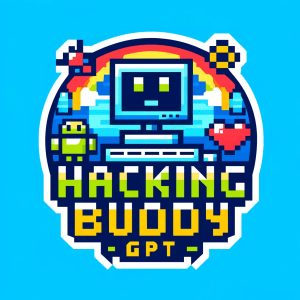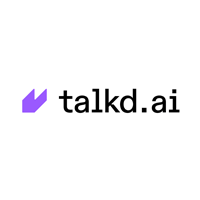GitHub up to dateannounced its 2024 accelerator program, which will support 11 cutting-edgeOpen Source AI ProjectsThe selected projects cover machine learning frameworks, biomedical research,AI ModelsThe goal is to promote the innovation and application of AI technology in multiple fields such as test platforms.
Each selected project will receive up to $40,000 in sponsorship funds and up to $350,000 in technical support from GitHub and its partners, including Microsoft Azure.
GitHub said that the goal of this support is to help developers promote the development of AI in an open environment and accelerate the realization of their goals. By providing generous financial and technical support, GitHub hopes to help theseOpen Source ProjectsInject new impetus and help it achieve breakthrough progress in the field of AI.
1. unsloth AI - bending the cost curve of fine-tuning models

Unsloth was founded by Australian brothers Daniel and Michael Han with the goal of making custom AI models more accessible. Unsloth fine-tunes open source models 2-5 times faster and uses 70% less memory than its competitors, leveraging emerging technologies and features to improve performance while maintaining accuracy.
Open source address: https://github.com/unslothai/unsloth
2. Giskard - AI model testing platform that brings transparency and accountability
![]()
Founder Alex Combessie and CEO and Machine Learning R&D Engineer Weixuan XIAO built an open source library for testing and evaluating large language models (LLMs). Giskard raises the bar for open source AI model quality, promoting overall adoption, research, transparency, and accountability. Designed for data scientists and developers, Giskard can help ensure the quality, security, and compliance of its customers' AI models.
Open source address: https://github.com/Giskard-AI/giskard
3. A-Frame — enables anyone to create AR/VR digital worlds, regardless of technical expertise

Diego Marcos is the co-founder and maintainer of A-Frame, who started developing A-Frame as a framework that allows anyone to develop AR/VR and 3D content through a web browser. A-Frame currently focuses on integrating AI workflows such as 3D Gaussian Splatting and generative AI for images and environments, and has supported tens of thousands of developers around the world. The project represents its commitment to accessibility, community, and resource availability.
Open source address: https://github.com/aframevr/aframe
4. Nav2—Home of Robotic Navigation

Roboticist Steve Macenski is the pioneer of the Robot Operating System (ROS) navigation framework. Today, Nav2 is used in production around the world and is the most widely deployed autonomous mobile robot (AMR) navigation solution, trusted by more than 100 companies including NVIDIA, Dexory, Polymath Robotics, Stereolabs, etc. Nav2 makes it easy, reliable, and efficient to deploy robotics, allowing users to focus on building product applications.
Open source address: https://github.com/ros-navigation/navigation2
5. OpenWebUI — Providing privacy, security, and performance natively with a world-class UI
Founder Tim Baek is based in Canada and hopes to build aoptimalUser interface that provides individuals with limited or no internet access the opportunity to leverage AI technology and its benefits. OpenWebUI is powered by a web interface that can run LLM locally, making LLM and AI more secure and private. The project hopes to grow its community of contributors and expand the project's reach in communities around the world.
Open source address: https://github.com/open-webui/open-webui
6. LLMware.ai – Simplifies the way enterprises make RAG models, secure and sensitive

Founder Namee Oberst started her second career after earning her law degree. Together with CEO Darren Oberst and Stefan Bachhofner, Namee was aware of the privacy and sensitivity issues facing many industries and sought to build secure and reliable LLM AI agents and retrieval-augmented generation (RAG) models for financial and legal institutions. LLMWare provides a comprehensive set of tools that can be used by anyone (from beginners to the most sophisticated AI developers) to quickly build industrial-grade, knowledge-based enterprise LLM applications.
Open source address: https://github.com/llmware-ai
7. LangDrive—Plug-and-play API for LLM training

Founder and CEO Michael Vandi and founding engineer Spatika developed an LLM email agent to reply to emails while pursuing their master's degrees at Carnegie Mellon University (CMU). After some learning, they realized that making LLM accessible with lower GPU requirements could benefit more developers and make it easier for everyone to use. Today, LangDrive is a simple framework for training and deploying production-grade fine-tuned language models through an API and configuration files. This will improve the maintainability of the code base by abstracting the fine-tuning process and reducing the number of fine-tuning lines from hundreds to just 10 lines.
Open source address: https://github.com/addy-ai/langdrive
8. HackingBuddyGPT – Autonomous agent and co-pilot for security teams

Austrian former security engineer Andreas Happe and PenTester PhD Jurgen Cito want to help ethical hackers and security professionals make the world a safer place with their LLM. What started as a research project has now grown into an autonomous hacker partnership with a human-computer interaction infrastructure, a web and API testing platform, and an Active Directory security management platform.
Open source address: https://github.com/ipa-lab/hackingbuddyGPT
10. Web-Check – Bringing security to the network

British open source advocate Alicia Sykes is a former British Army reservist who interned at Oxford University. Her mission is to make the Internet safer using AI security insights based on open data from any website or server. She founded Web-Check to democratize security by making it easier for developers to gain comprehensive visibility into websites, infrastructure, and servers.
Open source address: https://github.com/lissy93/web-check
11.marimo – Raising the standard for machine learning and data science notebooks

Co-founders Akshay Agrawal and Myles Scolnick set out to solve all the problems that exist when using notebooks for data science and machine learning. As the next generation Python notebook for AI and machine learning, marimo aims to provide reproducible, maintainable, and production-ready notebooks for AI/ML developers. Today, marimo provides a production-ready notebook that can be deployed as an interactive web application, executed as a script, and versioned using Git.
Open source address: https://github.com/marimo-team/marimo
Talkd.ai - Optimizing LLM with easy RAG deployment and management

Brazilian founder Vinicious Mesel started working part-time on Talkd.ai to build a unified LLM chat API that provides an abstraction layer for multiple LLMs and contexts. A first for the Brazilian open source community, the unified API will allow LLMs to always have and manage context to pre-process input and generate prompts from memory or context. Its goal is to promote and spread the use of RAG technology in LLMs.
Open source address: https://github.com/talkdai/dialog